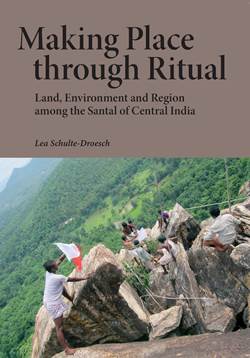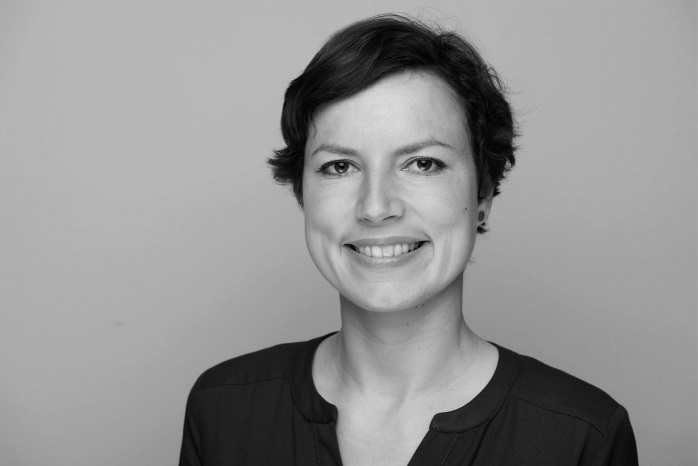Making Place through Ritual

On Thursday the 21st of April Lea Schulte-Droesch will defend her thesis Making Place through Ritual: Land, Environment and Region among the Santal of Central India, on the making of place through ritual among the Santal community of Central India, in order to receive a PhD degree in Religious Studies (Anthropology of Religion) at the Faculty of Theology and Religious Studies.
Santal rituals
An assertion made by the social sciences is that place is constructed and constituted through human action. Through their activities, people in different societies come to attribute different meanings to, for example, the forest, mountains or cities. In her PhD thesis, Lea Schulte-Droesch focusses on the culturally specific notions of place as existing among the Santal, one of the largest tribal societies of Central India. Her research is based on fourteen months of fieldwork in the state of Jharkhand. Lea used Santal rituals as a lens to study Santal associations and notions of place in the sense of land, environment and region.
Holistic
Lea Schulte-Droesch: “Rituals are understood as contexts in which cultural meanings are communicated. In addition, during rituals new meanings are formed. My argument is that the periodical enactment of these associations through rituals creates these notions of place as much as that it just expresses them.” Lea explains why she chose to do her research on this topic among the Santal society: “During an internship for a small NGO in 2005, I became fascinated by the Santal’s relationship with their environment and by how much their lives depend on their surroundings. All the Santal ritual examples in my thesis portray many facets of place: places as representing the ancestors' activities, places as seats of deities, dangerous and ‘uncivilised’ places like the forest, places that have become symbols of a Santal identity... My conclusion is that, because places contain so many different meanings, they can be regarded as holistic. As a methodology, studying place can then be very insightful for the study of any social phenomenon.”
Mountain rituals
“One example would be the Santal’s mountain rituals, which take place once a year in the beginning of the rainy season in July. During this ritual several villages offer goat sacrifices to the mountain deity. The ritual shows that the mountains and the forest are closely associated with rain. The mountain is considered the seat of the deity and during the ritual it is marked with flags as ‘the deity's place’ (see book cover picture). The different deities in the area are considered to be related to each other as younger and older brothers or as in-laws. This shows that the environment is structured in a similar way as society.”
PhD
Lea completed her Master's in Social and Cultural Anthropology, with a focus on the Anthropology of Religion, in Heidelberg and Berlin. “For my PhD research the University of Groningen was interesting for me, because here religion is studied as a cultural phenomenon and because Peter Berger, my co-supervisor, is an expert on Central Indian tribal societies.” On the 21st of April Lea Schulte-Droesch will defend her dissertation in order to receive the doctoral degree in the presence of her promoter, prof. dr. Kocku von Stuckrad, Professor of Religious Studies at the Faculty of Theology and Religious Studies of the University of Groningen.
- When: Thursday 21-04-2016
- Start: 14:30
- Where: Academy Building

More news
-
06 January 2026
Connecting with history
